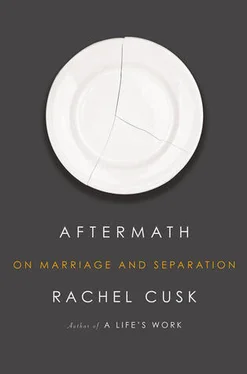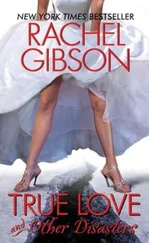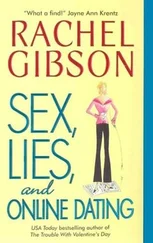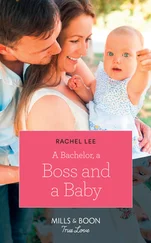Grief is not love but it is like love. This is romance’s estranged cousin, a cruel character, all sleeplessness and adrenalin unsweetened by hope. I have cousins I have rarely seen, for our families did not get on: they were like us but they were not us. A few years ago I saw them at a funeral, grown up now, a group of white-faced strangers clad in black. We spoke, politely, and it was unnerving to see in these strangers the lineaments of my siblings’ faces; to see coolness in their expressions instead of warmth, indifference where usually there was interest, to feel the lack of meaning and connection in what looked, nonetheless, like intimacy. And grief is somehow the same, resembling what it negates, each cousinly attribute a denial instead of a reinforcement.
I can’t eat, and soon my clothes are too big for me, all gaping sleeves and sagging waistbands, everything seeming to be on a different scale from myself, just as my mother’s clothes were when long ago I opened her wardrobe and curiously tried them on. In a way I enjoy the feeling of becoming a child again. It seems to acquit me of men and marriage, this loss of substance; to pair me with my daughters, as though I were rejoining them on the other side of what created them. I feel safer this way. I look at people eating, at restaurant tables, in cafes and on park benches, and compared to them I feel protected, as though what they are ingesting in all its richness and density is compromise. To need is to be compromised. They seem almost vulnerable while they eat.
As a family we would eat around the kitchen table, but now I carry my daughters their supper on a tray. The table is covered in papers and books and electricity bills. I try to remember what our family meals were like, and though the detail escapes me I remember it as a kind of tree, nourishment, with all of us fastened to its branches, as indistinguishable as fruit. Ours was a communal body: there was no individual drama of growing or shrinking. That same tree existed in my childhood, its cycles by turns reassuring and tyrannical. One could break away from it but the tree still stood. As a teenager trying to escape family mealtimes, I remember my mother’s disapproval — almost, her fear — of such absences. There was something she wanted us to believe, something she feared we might find out the truth of if we went elsewhere. That there were other places we could eat, perhaps; that this tree, family, was not the only source of life. To reject her food was to reject her; perhaps she thought food was the only thing we really needed from her, or the only thing she could provide. Mealtimes had the religiosity and infallibility of an institution, until we stopped believing in them and they were revealed to be just my mother, providing or needing, it wasn’t clear which.
Aren’t you having any? my daughters ask me. They are anxious, just like my mother was, but for the opposite reason. As a teenager I felt lumpish and slow, weighted down: I was in no danger of starving. When I left home I lost weight, as though the weight were the weight of these family relationships themselves. I succumbed to the ascetic purity of that alternative religion, hunger. And now I have left home again, am in that white light again; the tree has been cut down and the light comes pouring through.
My daughter makes a new friend, S. She and S don’t have much in common, as far as I can see. In fact, I don’t like S much. She has a great collection of electronic gadgets and devices she stares at, the morbid blue light of the screen on her face. She is forever drawing my daughter aside to show her what she’s looking at; the two of them stare together. Once, I go to collect my daughter from S’s house and through the windows see them sitting on a large beige sofa. On the wall in front of them is a huge screen with a film playing on it. As I get closer I see that S is holding another, smaller screen in her hands: the two of them are watching that, heads together, the blue light on their faces, like incidental figures in a religious canvas, absorbed in their own corner of life while at the painting’s centre Jesus is declaiming the Sermon on the Mount.
My daughter would like S to stay the night. She arrives with her overnight bag, her nail varnish collection, her gadgets. From elsewhere in the house I can hear them talking, but whenever I come in they fall silent. Over supper S replies to my questions in squeaking monosyllables. Her silence is portentous, smooth and sealed. She eats almost nothing. Later she produces packets of sweets and crisps from her overnight bag. I go in to say goodnight to them and find them lying side by side, looking at one of S’s devices under the covers, the blue light of the screen on their faces. They are quiet, almost inert, but later when I go to bed I hear them murmuring and giggling. I tell them to go to sleep but as soon as I leave the murmuring starts again. Several times in the night I wake and hear it, a sound like the sound of running water or a door banging in the wind, something I know I should get up and fix but don’t.
I go to London to meet my brother. At the sight of me his face slackens. My God, he says.
He takes me to an expensive restaurant for lunch and I eat everything on the table, eat the contents of the bread basket and the sugar lumps that come with the coffee. Afterwards he hugs me. Come and stay, he says. Bring the girls and stay for as long as you like.
My daughters worry that they are getting fat. They stand in front of the mirror, frowning. They prod their own flesh. It is as though some rigour has gone from our household, the rigour of the male; as though we have lost something rodlike and firm at our centre, our female bodies waxing and waning like pale moons.
A friend invites us for dinner. The children don’t want to go — do we have to? they say. They seem genuinely unhappy at the prospect. When we arrive they stand right next to me; they hold on to my clothes. They seem to fear losing me in the maze of someone else’s house, someone else’s family. Every few minutes they yank at my sleeve. Can we go now? they say, though we’ve only just arrived. It strikes me that they don’t like adults very much any more. When they are addressed they barely speak. Their faces are anguished.
My friend and his wife are good cooks. Theirs is a happy marriage, a joint creation of great delicacy and skill; I have always admired it, have liked to look at it and be in its presence. The food they make is expressive of themselves, healthy, moderate, and the opposite of punitive or dull. I have admired them, but things are different for me now. My admiration has become a kind of voyeurism, the broken perception of the vagabond roaming at lit windows. My children hover, tugging at my sleeve. I don’t want to put people to the test: it has struck me that along with all the other losses, I might lose friendship too. I’m not equal any more with the people I know, and what is friendship but a celebration of equality?
My friend sets the table. I watch him bring out the clean plates and glasses, the gleaming cutlery. I watch him lay the places. I watch him bring out fish and bread and bowls of greenery. The kitchen is warm and comfortable. To be at this ceremony of the table again is almost painful; my daughters hover, not wanting to sit down. Can we go now? they say. My friend pulls out chairs for them, fills their plates. If you don’t like it I can make you something else, he tells them. I’ve got other things, or maybe you just feel like eating bread. He offers the bread, and they take some. Then they eat what’s in front of them, all of it. When we leave my friend gives me a loaf of his good bread. He and his wife suggest meeting again in a few days’ time; they offer to take my daughters swimming with their son. My daughters don’t say very much but later, when we go home, they admit that they enjoyed themselves.
Читать дальше












